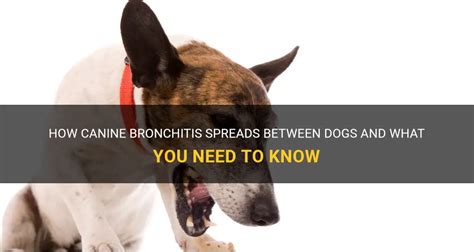Bronchitis: An Overview
Bronchitis is a common respiratory condition that affects both humans and animals, including pets. It is characterized by inflammation of the bronchi, the airways that carry air to and from the lungs. In pets, bronchitis can be either acute (short-term) or chronic (long-term).

Symptoms of Bronchitis in Pets
The symptoms of bronchitis in pets can vary depending on the severity of the condition. Some common symptoms include:
- Coughing
- Wheezing
- Difficulty breathing
- Lethargy
- Loss of appetite
- Fever
Causes of Bronchitis in Pets
There are a number of different factors that can contribute to the development of bronchitis in pets, including:
- Viral infections: Viruses are the most common cause of acute bronchitis in pets.
- Bacterial infections: Bacteria can also cause bronchitis, especially in pets with weakened immune systems.
- Allergies: Allergies to environmental triggers, such as pollen, dust, or smoke, can lead to allergic bronchitis.
- Irritants: Exposure to irritants, such as smoke, dust, or chemicals, can also cause bronchitis.
- Underlying health conditions: Pets with certain underlying health conditions, such as heart disease or lung disease, are more likely to develop bronchitis.
Diagnosis of Bronchitis in Pets
Your veterinarian will diagnose bronchitis based on your pet’s symptoms and a physical examination. They may also recommend additional tests, such as chest X-rays or blood tests, to confirm the diagnosis and rule out other underlying health conditions.
Treatment of Bronchitis in Pets
The treatment for bronchitis in pets will vary depending on the underlying cause and the severity of the condition. Some common treatments include:
- Antibiotics: Antibiotics are used to treat bacterial infections that cause bronchitis.
- Anti-inflammatory medications: Anti-inflammatory medications can help to reduce inflammation in the airways.
- Bronchodilators: Bronchodilators are used to open up the airways and make breathing easier.
- Cough suppressants: Cough suppressants can help to reduce coughing.
- Rest: Rest is important for pets with bronchitis to help them recover.
Prevention of Bronchitis in Pets
There are a number of things you can do to help prevent bronchitis in your pet, including:
- Vaccinate your pet: Vaccinations can help to protect your pet from viral infections that can lead to bronchitis.
- Keep your pet away from irritants: Keep your pet away from smoke, dust, and other irritants that can trigger bronchitis.
- Manage your pet’s allergies: If your pet has allergies, work with your veterinarian to develop an allergy management plan.
- Maintain a healthy weight: Pets who are overweight or obese are more likely to develop bronchitis.
- Regular veterinary checkups: Regular veterinary checkups can help to detect and treat bronchitis early on.
Prognosis for Bronchitis in Pets
The prognosis for bronchitis in pets varies depending on the underlying cause and the severity of the condition. With proper treatment, most pets with bronchitis will make a full recovery. However, some pets with chronic bronchitis may experience recurrent flare-ups of the condition.
Conclusion
Bronchitis is a common respiratory condition that can affect both humans and animals, including pets. It is important to be aware of the symptoms of bronchitis in pets and to seek veterinary care if you suspect your pet may have the condition. With proper treatment, most pets with bronchitis will make a full recovery.





















